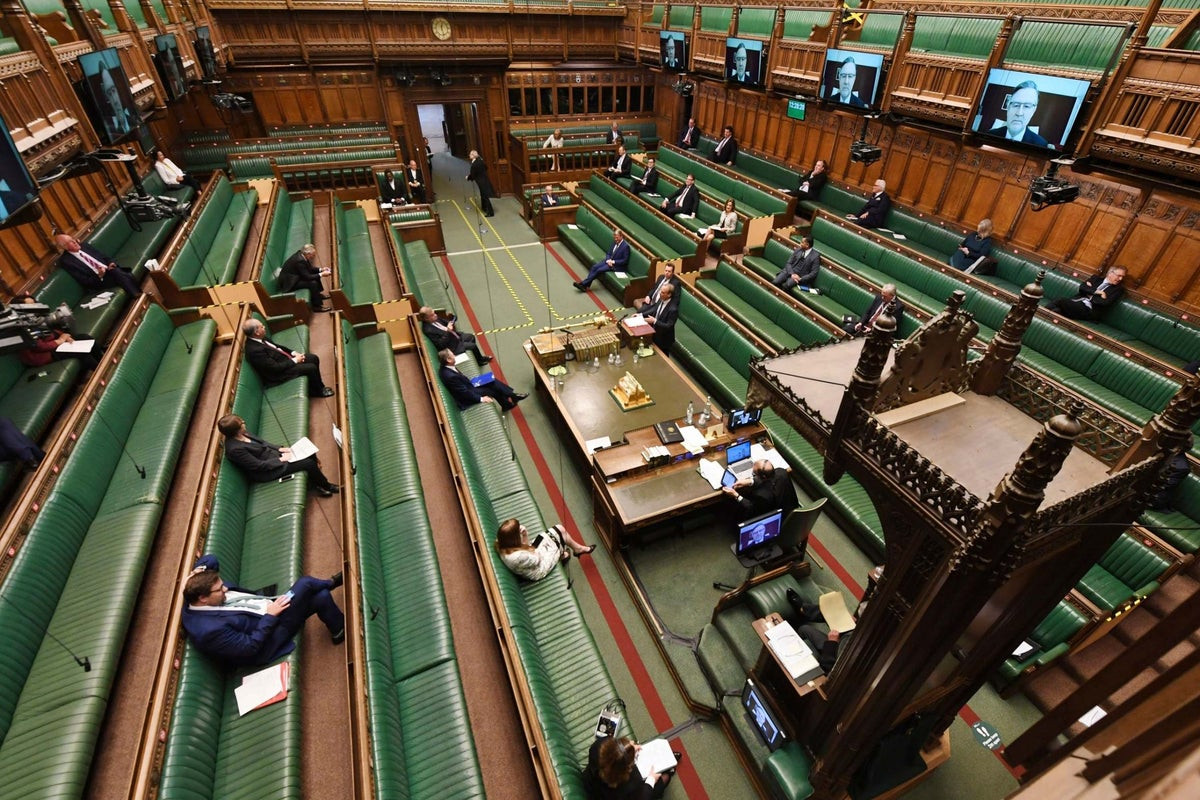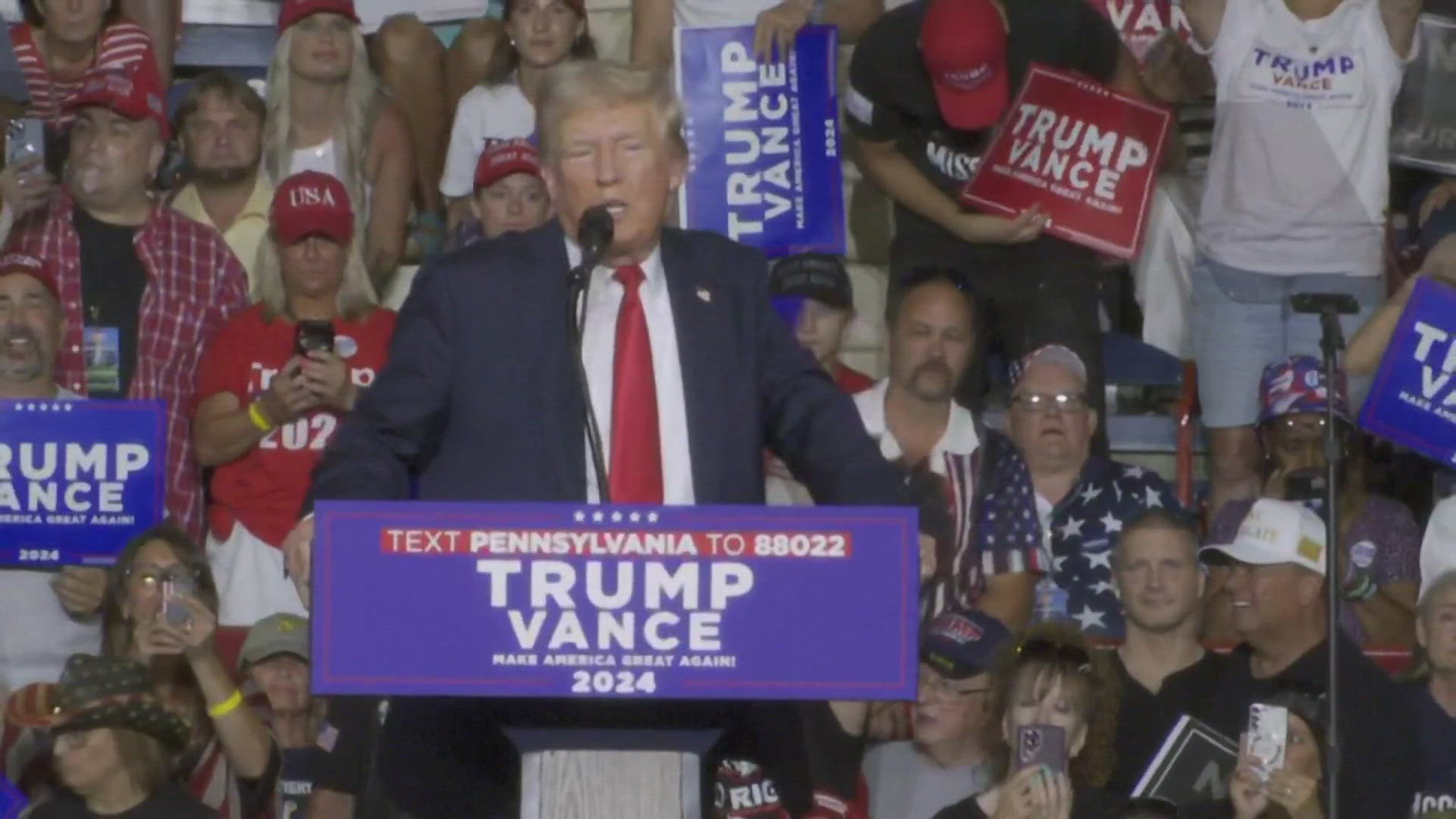Conservative MP Esther McVey has drawn backlash over a social media post in which she appeared to liken the government's proposed outdoor smoking restrictions to the Holocaust.
She shared it after Sir Keir Starmer said on Thursday "more details will be revealed", when asked if the government was considering a smoking ban in pub gardens and other public outdoor spaces.
Esther McVey has been branded as “repugnant” by the Board of Deputies of British Jews for likening the government’s proposed smoking ban to the Holocaust.
Sharing quotes from the poem, the former Cabinet minister wrote: "First they came for the Communists. And I did not speak out. Because I was not a communist.
"Then they came for the Jews. And I did not speak out. Because I was not a Jew.
"Then they came for me. And there was no one left. To speak out for me.
"Pertinent words re Starmer's smoking ban."
The post quickly drew criticism, with the Board of Deputies of British Jews calling it an "repugnant action".
“The use of Martin Niemoller’s poem about the horrors of the Nazis to describe a potential smoking ban is an ill-considered and repugnant action,” it said in a statement.
“We would strongly encourage the MP for Tatton to delete her tweet and apologise for this breathtakingly thoughtless comparison.”
Health Secretary Wes Streeting told Ms McVey to "get a grip".
He said in a post on X: "No, I do not think the post-war confessional of Martin Niemöller about the silent complicity of the German intelligentsia and clergy in the Nazi rise to power is pertinent to a Smoking Bill that was in your manifesto and ours to tackle one of the biggest killers."
Rabbi David Mason, executive director of the Jewish Council for Racial Equality, said: “Tasteless. Utterly tasteless. How can you not see that?”
Despite the backlash, Ms McVey doubled down on her post saying it was merely an "analogy" and it is "ridiculous for anyone to even suggest" she was equating the ban to the horrors of the Holocaust.
She said: “Nobody is suggesting that banning smoking outside pubs can be equated with what happened to the Jews at the hands of the Nazis. It is ridiculous for anyone to even suggest that was what I was doing.
“I am pretty sure everyone understands the point I was making and knows that no offence was ever intended and that no equivalence was being suggested.”
She then stated she would “not be bullied” into removing the social media post by people “who are deliberately twisting the meaning of my words and finding offence when they know none was intended”.
A Controversial Analogy
McVey's post sparked widespread condemnation, with many criticizing her for trivializing the Holocaust by comparing it to a public health policy. Critics pointed out that the poem, which recounts the gradual erosion of freedoms under Nazi rule, is a powerful testament to the dangers of apathy and inaction in the face of oppression. Using it to draw a parallel to a smoking ban was seen as insensitive and disrespectful.
The Board of Deputies of British Jews, a prominent Jewish community organization, issued a statement calling McVey's post “breathtakingly thoughtless” and urging her to delete it and apologize. “The use of Martin Neimoller’s poem about the horrors of the Nazis to describe a potential smoking ban is an ill-considered and repugnant action,” the statement read.
Health Secretary Wes Streeting, a Labour MP, also criticized McVey, calling her analogy "tasteless" and urging her to "get a grip." He argued that the poem is a serious reflection on the Nazi regime and its atrocities, and should not be used to trivialize public health concerns.
A Divided Public Opinion
While McVey's post drew widespread condemnation, some defended her right to express her opinion. Some argued that she was merely highlighting the potential for government overreach, while others claimed that her post was misinterpreted and that she did not intend to equate the smoking ban to the Holocaust.
McVey herself doubled down on her post, insisting that she was using an analogy and that no offense was intended. She said that she would not be bullied into removing her tweet by those who were deliberately twisting her words.
The controversy surrounding McVey's post underscores the sensitivity surrounding the Holocaust and the need for careful consideration when referencing it. While freedom of speech is essential, it is important to remember that words have power and can have a profound impact on others.
The Smoking Ban Debate
The proposed smoking ban, which would extend the current ban on smoking indoors to outdoor areas such as pub gardens, has been met with mixed reactions. Public health experts welcome the ban, arguing that it would significantly reduce exposure to second-hand smoke and encourage people to quit smoking. However, hospitality industry leaders have expressed concerns about the potential impact on their businesses, arguing that it could drive away customers and lead to closures.
The debate surrounding the smoking ban highlights the complex interplay between public health concerns and economic interests. The government faces a difficult balancing act as it seeks to promote public health while also supporting businesses.
The Road Ahead
The controversy surrounding McVey's post and the ongoing debate over the smoking ban are likely to continue. It remains to be seen how the government will proceed with its plans for a smoking ban and whether it will be able to appease both public health advocates and business owners.
The episode has also raised questions about the role of social media in political discourse. McVey's post highlights the potential for social media to amplify controversial statements and expose individuals to criticism. It also underscores the importance of responsible and thoughtful online communication.
The events surrounding the smoking ban and McVey's controversial post are a reminder that public discourse is often fraught with complexities and that it is important to engage in constructive dialogue and respectful debate.


















